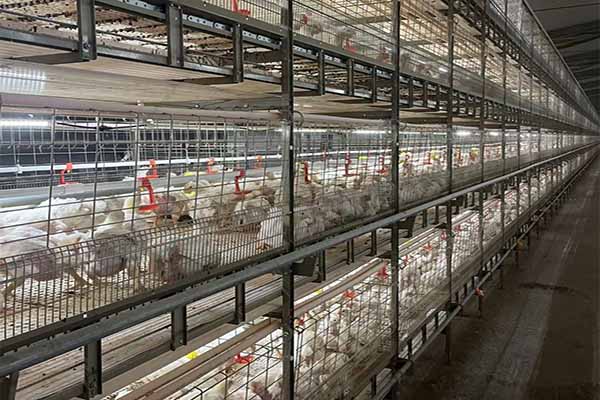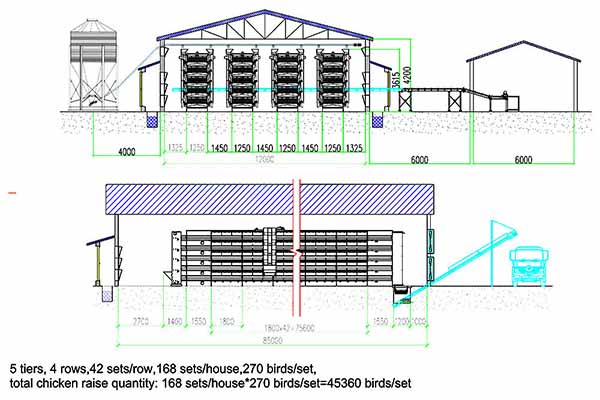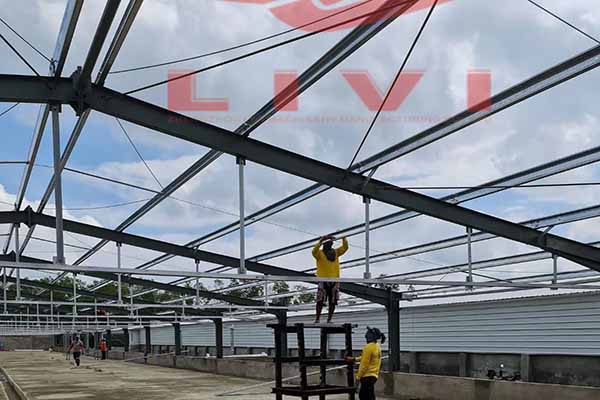Tanzania and Kenya Chicken Farm Automation: A Case Study on Equipment and Technology
Time : 2025-07-02
Chicken farming has become a vital industry in East Africa, with countries like Tanzania and Kenya leading the way in poultry production. The integration of automation equipment has revolutionized the way chicken farms operate, enhancing efficiency, productivity, and overall farm management. This case study delves into the automation equipment used in chicken farms in Tanzania and Kenya, providing insights into the technologies that drive modern poultry farming. Below is a comprehensive overview, including a video demonstration of the equipment in action.
Introduction to Chicken Farm Automation in Tanzania and Kenya
The poultry industry in Tanzania and Kenya has seen significant growth over the years, with a focus on increasing production to meet the rising demand for chicken meat and eggs. Automation has played a crucial role in this growth, as it allows farmers to manage their operations more effectively and with less labor-intensive tasks.
Key Components of Chicken Farm Automation Equipment
The automation equipment used in chicken farms in Tanzania and Kenya includes a range of tools and systems designed to streamline various aspects of poultry farming. Here are some of the key components:

- Climate Control Systems: Maintaining optimal temperatures and humidity levels is essential for the health and growth of chickens. Automation systems can regulate these conditions, ensuring a comfortable environment for the birds.
- Feeding Systems: Automated feeding systems dispense feed at predetermined intervals, reducing waste and ensuring that chickens receive the nutrition they need for healthy growth.
- Watering Systems: Automated watering systems provide a constant supply of clean water, crucial for the hydration and overall health of the chickens.
- Monitoring and Data Collection: Sensors and cameras are used to monitor the health and behavior of chickens, providing valuable data for farm management.
- Incubation Systems: Automated incubation systems control the temperature, humidity, and turning of eggs during the hatching process, increasing the survival rate of chicks.
- Manure Management: Automated systems can manage the collection and disposal of manure, reducing the risk of disease and improving the farm’s environmental impact.
Case Study: Automation Equipment in a Tanzanian Chicken Farm
One of the leading chicken farms in Tanzania has succes sfully integrated automation equipment into its operations. Below is a detailed case study of the farm and the equipment used:
sfully integrated automation equipment into its operations. Below is a detailed case study of the farm and the equipment used:
Farm Overview
The farm, located in the northern region of Tanzania, specializes in the production of broiler ch ickens. With a total of 100,000 birds, the farm has seen a significant increase in productivity since implementing automation.
ickens. With a total of 100,000 birds, the farm has seen a significant increase in productivity since implementing automation.
Automation Equipment Used
- Climate Control System: The farm uses an advanced climate control system that adjusts the temperature and humidity levels in the chicken houses based on real-time data from sensors placed throughout the farm.
- Feeding System: An automated feeding system ensures that chickens receive the right amount of feed at regular intervals, optimizing growth and reducing feed waste.
- Watering System: The farm has installed automated watering systems that provide a continuous supply of clean water to the chickens.
- Monitoring and Data Collection: The farm uses a combination of sensors and cameras to monitor the health and behavior of the chickens, enabling prompt action in case of any health issues.
Case Study: Automation Equipment in a Kenyan Chicken Farm
Another successful example is a chicken farm in Kenya, which has also seen remarkable improvements in productivity through the use of automation equipment.
Farm Overview
This farm, located in the Rift Valley region, is one of the largest poultry producers in Kenya. With a capacity of 150,000 birds, the farm has adopted a range of automation technologies to enhance its operations.
Automation Equipment Used
- Incubation System: The farm utilizes an automated incubation system that ensures the optimal conditions for egg hatching, resulting in a higher survival rate of chicks.
- Manure Management: An automated manure management system is in place to collect and dispose of manure, minimizing the risk of disease and improving the farm’s environmental footprint.
- Climate Control System: Similar to the Tanzanian farm, the Kenyan farm uses a climate control system to maintain the ideal environment for the chickens.
Video Demonstration of Automation Equipment
For a firsthand look at the automation equipment in action, please watch the following video demonstration:
Your browser does not support the video tag.
Conclusion
The case studies from Tanzania and Kenya illustrate the positive impact of automation equipment on chicken farming. By integrating these technologies, farms can achieve higher productivity, better health management, and more efficient operations. The future of poultry farming in East Africa looks promising, with continued advancements in automation and technology set to further transform the industry.











